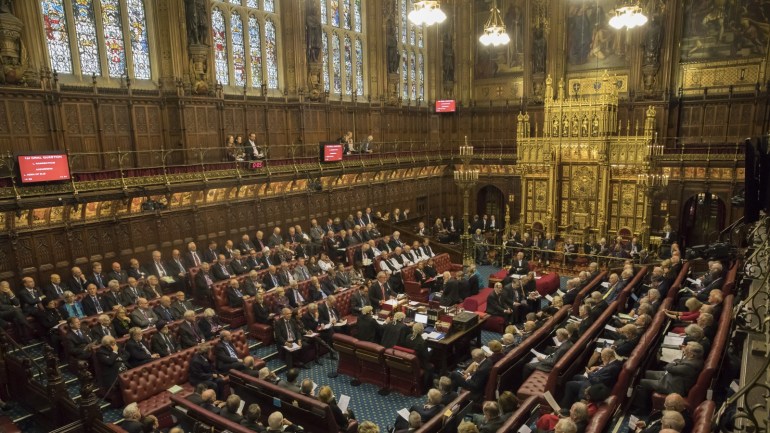British Prime Minister Boris Johnson granted his brother Joe a seat in the House of Lords, in a bonus forbidden by former Speaker of Parliament John Berko, in a precedent two centuries ago.
The list of the 36 new members of the House of Lords - published by the government on Friday - includes a large number of supporters of Brexit, and Queen Elizabeth II officially returns their appointment.
And Joe Johnson, a staunch supporter of Europe, left his older brother’s government last September under the pretext of “national interest”, considering that the prime minister’s strategy in the thorny Brexit dossier was very strict.
The list also includes figures from the Conservative Party, including former Finance Minister Philip Hammond, and about 20 who voted with workers in the numerous polls that took place on the Brexit.
It also includes the name of Philip May, husband of former Prime Minister Theresa May in appreciation of his "political service", and British-Russian businessman Yevgeny Lebedev.
The name of the former House of Commons Speaker John Birko, who was accused by Brexit supporters, was not included in the list as obstacles in the vote taken by disputing lawmakers to ratify the exit agreement.
This is the first time in two centuries that a former speaker of the House of Commons was not given a seat in the House of Lords.
With these appointed, the Lords are supposed to have 800 members appointed for life, but they can resign or retire.
The list angered Johnson's political opponents. The House of Commons member of the opposition Scottish National Party, Pete Weishart, said Johnson had revealed "the worst kind of patronage" by granting life-long jobs "to friends and those who served him."
Darren Hughes - who heads the "electoral reform organization" that seeks to reform the British election system - said, "The prime minister is ridiculous by appointing a group of former MPs and loyal to the party and his brother."
He added that "being able to do this without a problem reveals to what extent this council has become a private club for its members."
As for Lords member Peter Fowler, he saw that "this list - which includes new members - is a lost opportunity to reduce the number of members of the Council", and Fowler's office had recommended reducing the number of Lords to 600.

